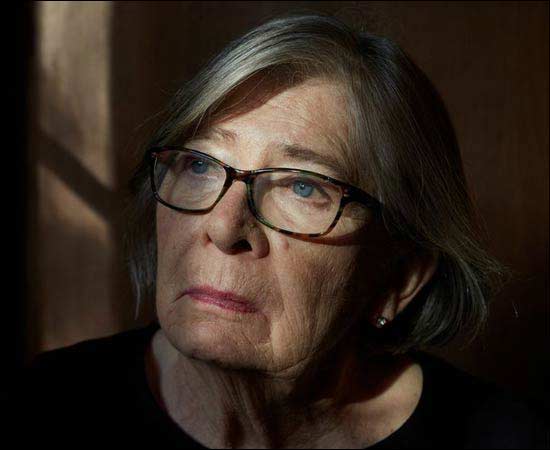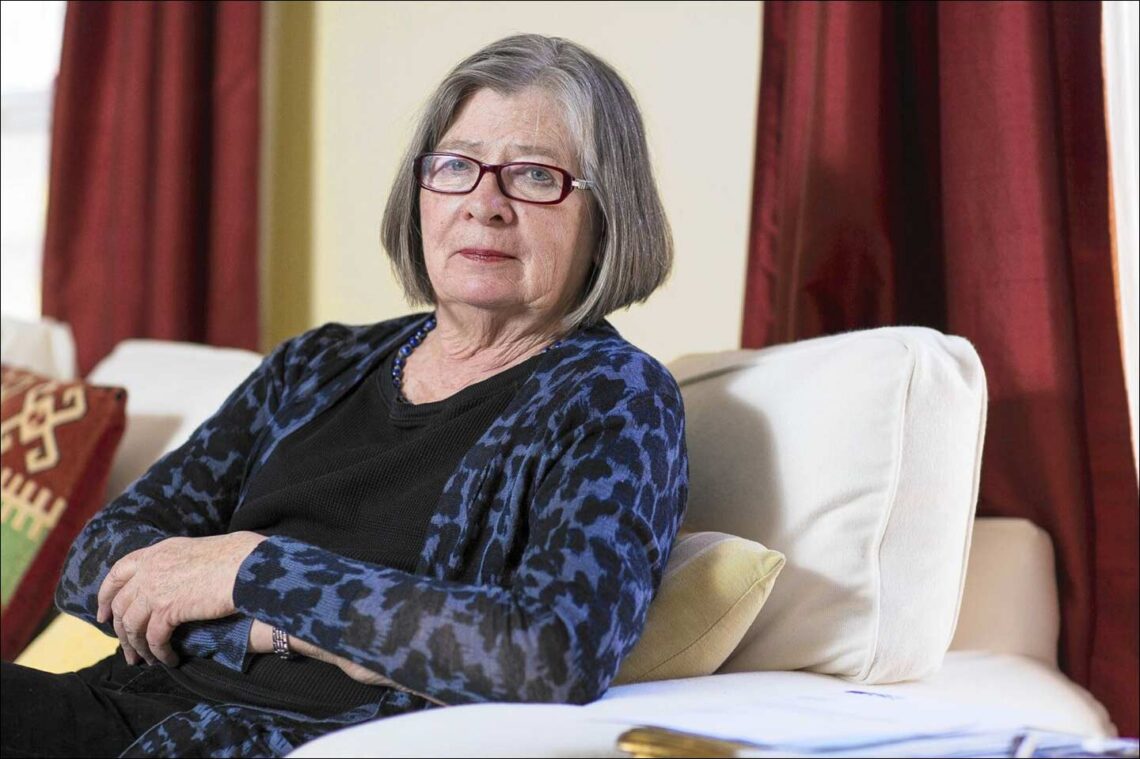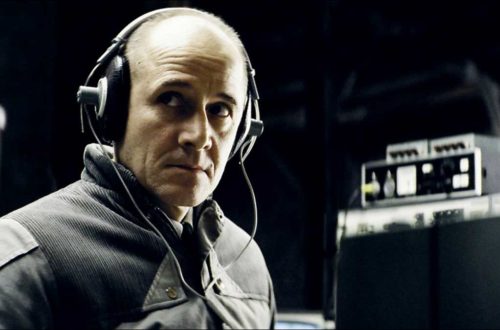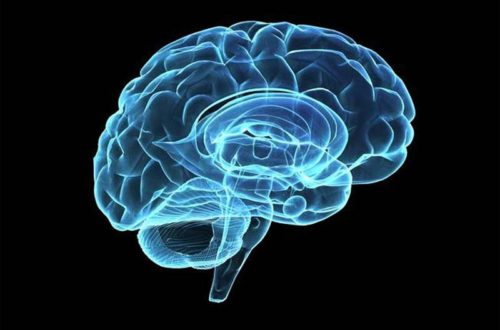I saw that Barbara Ehrenreich died three weeks ago.
I was saddened. I enjoyed Ehrenreich as an author, although I disagreed with her on just about everything. I especially enjoyed her “Nickel and Dimed” piece of muckraking investigative journalism, and read the first chapter with my economics students each year. I saw that not long before her death, Barbara had published a book which had flown under the radar and I knew nothing of – a “spiritual autobiography,” or something akin. The book was called “Living with a Wild God.” I immediately bought and listened to the audiobook version, read by Barbara herself. It was wonderful to hear her talk about herself with her own voice. Barbara initially claims her book would not be a standard autobiography, as she wants to talk about certain mystical experiences she had as a teenager. But then her book goes on to be pretty much a standard autobiography which focuses on her earlier years.
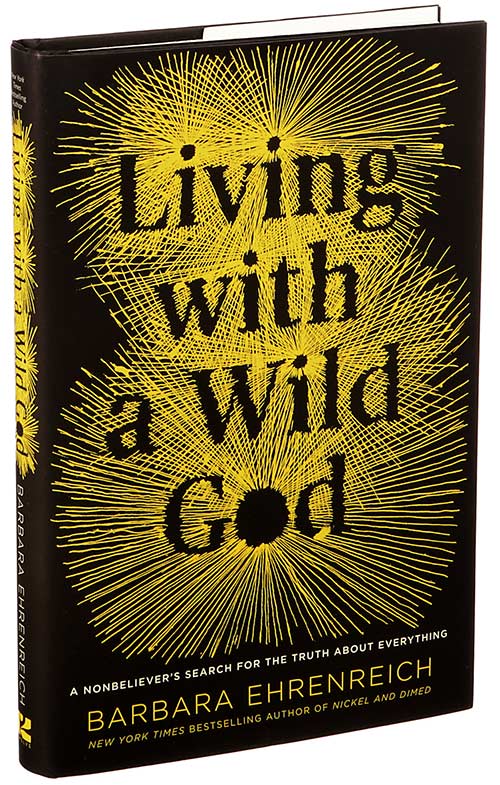
Barbara’s home life was fascinating. Barbara had highly dysfunctional alcoholic parents who were unhappily married, and her upbringing was full of perpetual loneliness, intrafamily vitriol, and constant moving from place to place. Barbara was raised in an atheist family where nobody much liked each other, and she was left to try and find the answer to the “why am I alive?” and “what do I live for?” questions by herself. She was bookish and smart, and not physically attractive or having strong people skills. So Barbara earned good grades and had few friends; her own mother told her she would never attract a man, and she didn’t until college and later.
But Barbara found her way. Blessed with strong brains, she made her way via good grades and achievement in high school and college. Barbara found herself a Ph.D candidate in biology when she finally found her way in the world – through political activism. Without any religion or larger meaning in life given to her by her family, Barbara had struggled to find a reason to get up in the morning. “Why are you on this earth?” “What does it matter?” Barbara had few answers to these crucial questions about her life. But she started to protest the Vietnam War, and from there she moved into a litany of political causes over the next several decades. From that point on Barbara was a convinced socialist and feminist, and she had no problem finding a reason to wake up in the morning. Barbara lived for political reform. She was an activist.
Politics for Barbara, like for so many leftists, becomes a sort of secular religion. She lives to “comfort the afflicted, and afflict the comfortable.” Barbara works to serve the downtrodden, and to attack the downtrodders. This is predictable stuff. And I have always thought that those who replace traditional religion with a secular one (like politics) will be left unsatisfied by the ersatz replacement. Thirty years after dedicating your life to political reform, you are going to find yourself disappointed and disillusioned. Politics as a form of redemption will be the god which failed. I almost stopped reading the book when Barbara was re-born as a political activist dedicated to “social justice.” It was predictable and unremarkable. The politics were almost a cliche.
But I found her family dynamic to be fascinating. Her strong but difficult relationship with her brilliant but erratic father, and her unremittingly negative connection to her unhappy mother: this was interesting. The caustic role of alcohol in bringing her parents down, and how the kids suffered from it, also.
Also, I found it instructive to see how Barbara made her way with the opposite sex. Barbara was a brilliant student with not terribly strong social skills. You think of a beautiful young woman like Cleopatra with power and influence – or even the pretty girl in high school who used her looks to gain influence and be “popular” – well, Barbara was the opposite. She was nerdy and introverted. She did not have many friends. She did very well in school. She was maybe not ugly, but she was not pretty. Barbara was not enjoying much success with the opposite sex. Her mother repeatedly told Barbara to her face she would never be able to attract a man.
That is a heavy thing for a girl to be told by her mother.
But here is the thing: it is not true. It was not true for Barbara. Maybe she was not an “early adopter” in dating. Barbara was not going to win a popularity contest or flirt and date much in high school, but she would eventually find her way. This is what I have learned: ugly and unpopular kids (usually) figure out how to get their physical and emotional needs met via romance. They often just do it later than some others. They get boyfriends and girlfriends, who are usually physically unattractive also, and they seem to be as happy (or unhappy) as anyone else.
In fact, I suspect that ugly people have as good a chance as pretty people in terms of finding a successful lifelong romantic companion. They find someone to love who loves them, and they can have fulfilling sex lives and the rest. Things equal out over time. Maybe even more so.
In her lifetime Barbara was married and divorced twice. Barbara enjoyed the “good, bad, and the ugly” of man-woman interaction as much as any of her prettier, more popular high school peers. She was a mother to two children. She might have been more than a bit nerdy and “flat” in affect, but Barbara more than made up for that in brains and drive. My experience decades ago was that the most prestigious colleges in America generally consisted of very plain looking young women like Barbara, and mediocre schools like Cal State San Diego or Arizona State had tons of beautiful women. This was not always true, by a long shot, but it was generally true, in my experience.
Do men and women who will never win any prizes for beauty or charm come to realize this brute fact, and so seek to compensate by maximizing their brains and non-physical traits? In contrast, do pretty people tend to flirt and manipulate others with their beauty to maximize their potential? I have even heard the typical “woke folk” decry “pretty privilege,’ in their long list of “privilege” complaints.
At any rate, I found Barbara Ehrenreich’s personal family history to be fascinating. This was 4/5th of her book. I found the last fifth dealing with Barbara’s “Paul on the road to Damascus” moment of political conversion to be pithy, predictable, mundane, and unremarkable. That was the vast majority of Barbara’s life. True, she struggles in youth, as do most.
But Barbara found her way in the world, despite (or because of?) her inauspicious beginnings.
Rest in peace, Barbara Ehrenreich.
You figured it out. You found your way and place in the world. You found a reason to wake up in the morning. You did your best in your marriages, and in your role as a mother, activist, and author. You made it to the end much better than your parents did, and you lived a full life, especially compared to so many others.
I hope to say as much myself.
More than two and a half decades behind you in age, I will be in the same situation soon enough.
Ars longa, vita brevis!
